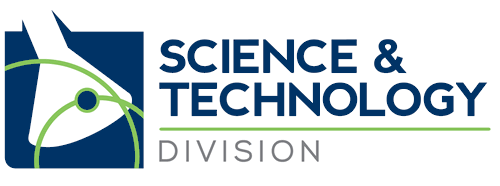987
Interview with Lebzy González, PhD, Spanish into English Translator
Can you tell us a bit about yourself?
I was born and raised in San Juan, Puerto Rico and moved to Boston to study engineering at MIT just after I turned 17. At this point I have lived most of my life on the US mainland and visit the island once or twice a year. Like many Puerto Ricans, my family is scattered all over. At last count, we’re spread over two Caribbean islands, four states, and two languages.
It seems that many scientific and technical translators take a roundabout path in their careers. Is that true for you? Tell us about how you became a translator with your specialization.
When I was a child, I wanted to be a writer. I was fascinated with the written word and obsessed with perfecting my English—I even started my own magazine with a friend while we were still in grade school. It wasn’t until high school, when I was invited to join the Math Team, that I became interested in technical subjects and decided to study engineering.
Somewhat ironically, attending engineering school had a profound and positive impact on my writing skills. Engineers have a reputation for being indifferent writers, yet the work itself involves a fair amount of documentation. Because of this, my university required us to demonstrate that we could write at a professional level and supported us with courses and tutoring specifically designed for engineering students.
After engineering school came a doctorate and about a decade of work as a materials research scientist in the private sector. By 2009 I was aching for a change. At first I thought I just needed to find a new employer; however, after a bit of networking and soul-searching I realized that I needed a more fundamental change than that. A friend suggested translation. I began attending the meetings of the New England Translators Association and reading books about translation. My interest just grew and by the end of that year I had enrolled in two online translation courses.
The following year, I quit my research job and went traveling around the world while continuing to study translation. I took the opportunity to spend several months in Latin America and become acquainted with local cultures and dialects. Finally, in 2011, I hung my shingle as a freelancer specializing in those topics I researched during my engineering career: polymer science, composites, characterization techniques, and mechanical testing. I became ATA certified (Spanish into English) in 2013.
What advice would you give to translators or interpreters just starting their careers?
Seek feedback wherever you can find it. Join translation associations and network with colleagues as much as possible. Many successful translators are autodidacts, but I like to encourage prospective translators to enroll in courses that provide detailed feedback and interaction with other students and translators. They are a very efficient way to develop and improve our skills.
What is unique about your skill set? What sets you apart?
My expertise and areas of specialization set me apart. I translate the same topics and types of documents that I worked with as a research scientist. This means that I understand the entire process, not just the terminology, and can offer more complete solutions to a client’s needs, whether they’re filing a patent application or submitting a multimillion-dollar project proposal.
What is your favorite type of text to translate? What makes it fun for you?
I love being able to work on several documents related to the same project. For example, translating a patent and related scientific publications or an engineering proposal along with its technical specifications. And, of course, the more specialized the document, the better.
Can you describe a project that you’re most proud of, or one that was particularly memorable?
I’ll never forget my very first paid translation project. In many ways it was the perfect assignment: a Mexican patent on polymer nanocomposite processing, one of my specialties. The source document was not very well written and contained many grammatical errors; my job was to translate it into English and make it shine. It reminded me of the texts that I used to edit for my undergraduate technical writing class—I was very grateful for that experience!
How can readers learn more about you and connect with you?
I tweet under my name (@LebzyGonzalez) and am active on LinkedIn and the S&TD Facebook group. I also have a short bio on my website, www.lgtranslations.com.

